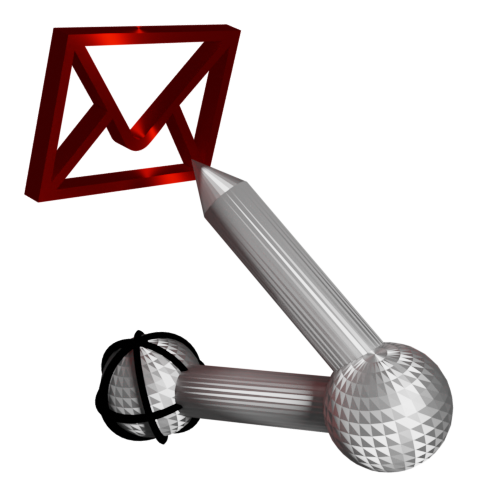AyMINE – Technical documentation
Modules
 Task, project & quality management
Task, project & quality management
Manager approval with the task report
Why some data can't be deleted
Adminitration of areas, projects, calendars
Region / project / methodology
Change management process in a project
GDPR and record of qualifications
Qualification of user or contact
Right to Manage Qualifications
Failure Analysis for an Individual Property of a Component or Process
FMEA – Probability of Detection
FMEA – Probability of Occurrence
 Task, project & quality management
Task, project & quality management
Administration of the Task Management Module
System rights for the task management module
Improvements and Preventive Measures
Methodology and Quality Management systems
What a methodology / QMS consists of
Problems, tickets and their management
Collaborative Resolution of Multiple Problems
Customer Service Response Generation
Incident and Quality Issue Management
Objects affected by the problem
Problems, Incidents, Helpdesk Tickets
Return project plan by baseline
Sample tasks and methodologies of the area
Effect of the task on the right to modify the attached object
The person responsible for the task
Working procedure – task definition
Objects related to the task pattern
 Contacts and directories module (CRM)
Contacts and directories module (CRM)
Order overview for customer groups
 Contacts and directories module (CRM)
Contacts and directories module (CRM)
System Permissions and CRM Module Settings
Send bulk messages in compliance with GDPR
How to correctly forget a person's details
Unsubscribe and set preferences
for bulk mail
 Web management and automation
Web management and automation
Receiving a message from the web
Human resources
Personalistics – User Permissions
Human Resources module security
Manage department / division data
Overview of Personnel Information for pracov# Employment Contract
Synchronizing staff and system users
 Products, assets and sales
Products, assets and sales
Received order for goods or services
Finance management
Metrics and Measurements
Technical Modules
Sabre plugin module
Enterprise Architect connector
Database link to Enterprise Architect database
Enterprise Architect connector
System Modules
 The AyMINE Framework Module
The AyMINE Framework Module
AyMINE — Tips for Mobile Usage
Configure how your system looks and works
Gestures and Keyboard Shortcuts
More about how the system works
Private notes and tags for objects
Overview of Modules and Record Types
Filtering in the list of records
 System Management
System Management
Additional functions with files
Copying and moving files between objects
Files (documents) linked to the object
Formatted texts in the application
Gateway settings for external messages
IMP gateway settings for email communication
Internet Call Gateway Settings
Message with the outside world
Level of Competence
Qualifications and competences are often evaluated in more levels.
Common levels of competence
System supports most commonly used levels:
Student
Student is the most basic level used for people that are not competent to perform work related with the requested competence. They are involved to the tasks to get practice or perform supportive operations.
A student:
- Never works independently
- Never makes a review
- Has never responsibility for a task that has required qualification or competence
Junior
Juniors are persons capable to perform tasks under the supervision. They are expected to complete task independently, although they might need an advice.
Task performed by a junior should always be reviewed by someone with higher level of competence.
A junior:
- Can work independently
- Should always have assigned mentor who advices him/her when needed
- Mentor is expected to have time for junior
- Mentor should have higher level of the same or closely related competence or qualification
- Can review the task if they that is performed by a person with higher qualification
Experienced
Experienced worker has enough training, experience and skills to work independently and be fully responsible for task performance.
Experience worker should always have appropriated process training to understand
- Importance of the tasks related with the competence
- Internal processes and task consequences
- How escalation procedure in a company works
Expert
Expert is the highest level of the qualification and it is expected that expert has deep knowledge of the work area. Experts leads innovations and improvements, teach juniors and spread knowledge.
An Expert:
- Cooperate on the knowledgebase to build up general company skills.
- Have time to think how to work as good as possible
- Regularly study trends and technologies
- Cooperates as consultants on project so less skilled persons gain knowledge from them
Might be good to know
Are the levels used for qualifications?
Qualifications depend on a certificate or some exam. These are often only single-level and so the levels are not formally distinguished.
Nevertheless, levels are widely used for internally defied competencies as well as for internal differentiation of the competence level for some qualification:
- Person with a qualification but without experience from a real project has the Junior level
- Person with at least single successful project moves to the Experience level.
Can we change the list of levels?
Default levels are predefined in the default system implementation. Level of competence are defined by system counter but they can be modified for clients on request (paid service).